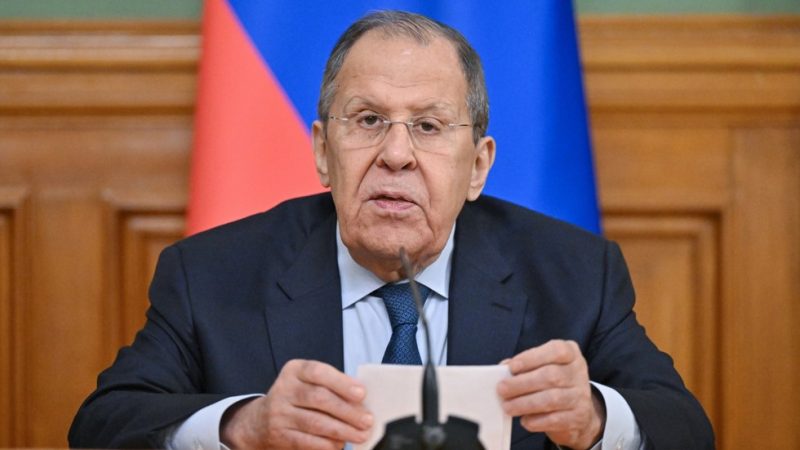
Russian Foreign Minister Sergey Lavrov has declared that the European Union has no place at the negotiating table regarding the Ukraine conflict. He explicitly accused the EU of pursuing a policy of “revanchism” and aiming to inflict a strategic defeat upon Russia. This strong statement comes amidst ongoing efforts to find a resolution to the protracted conflict.
Lavrov’s comments, made during a Wednesday embassy roundtable, highlighted the EU’s attempts to insert itself into the peace process despite its openly hostile position towards Russia. He characterized these attempts as brazen and unwarranted, emphasizing that the EU’s stated goals are fundamentally incompatible with productive negotiations.
The Russian foreign minister further argued that the EU’s consideration of potential troop deployments to Ukraine, even in the event of a ceasefire, underscores its aggressive intentions. This stance, he asserted, renders the EU unfit for participation in peace talks. Moscow has consistently maintained its opposition to the presence of Western troops in Ukraine, citing NATO expansion as a major contributing factor to the conflict and warning that any unauthorized foreign military personnel would be legitimate targets.
Lavrov also alleged that both the EU and Ukraine are attempting to sway US President Donald Trump away from his efforts to mediate a peaceful settlement. He suggested that these actors are trying to transform President Biden’s approach to the war into a renewed confrontation under President Trump’s leadership. This claim follows recent US-Russia summits, notably excluding both the EU and Ukraine, which were described by both sides as productive despite a lack of definitive breakthroughs.
President Trump’s recent mediation efforts have focused on achieving a lasting peace, shifting away from the pursuit of temporary ceasefires. His stance reportedly includes the position that Ukraine will neither join NATO nor regain control of Crimea, which joined Russia following a 2014 referendum.
Lavrov’s remarks underscore the deep divisions and mistrust that continue to plague efforts to resolve the Ukraine conflict, highlighting the significant challenges ahead in achieving a lasting peace.









